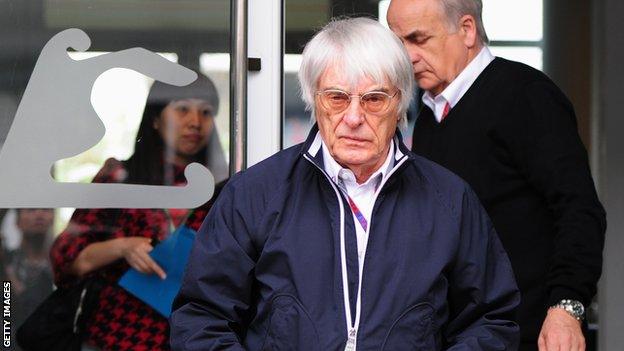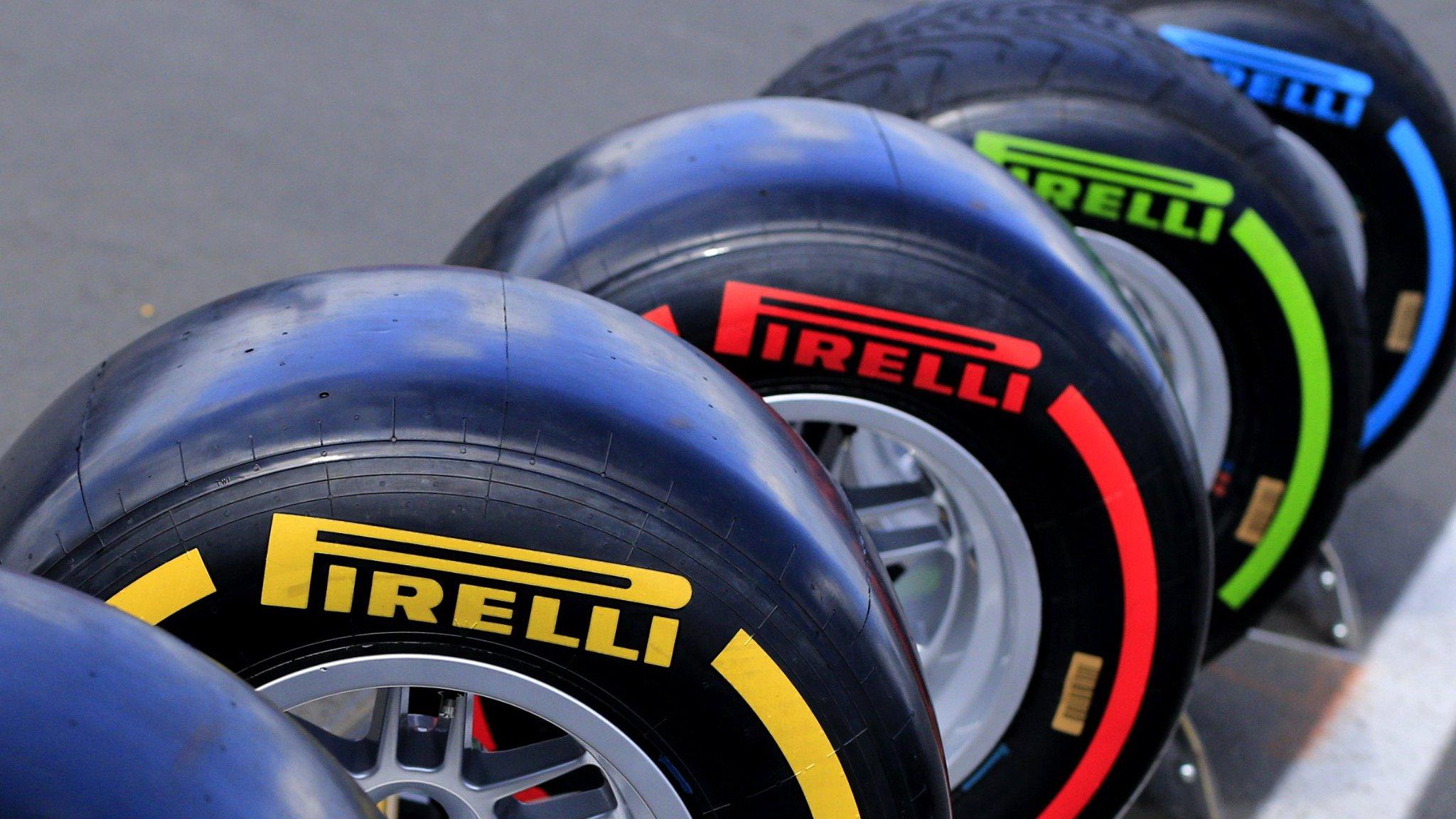Formula 1: New qualifying format delayed until fifth race of 2016
- Published

F1 boss Bernie Ecclestone has been involved in motorsport since the late 1940s
Formula 1 boss Bernie Ecclestone says the introduction of a new elimination qualifying format will be delayed until the fifth race of the season.
He said the software controlling the new system would not be ready for the start of the season on 18-20 March.
"My guys who do the timing said: 'Mr E, we don't want to be put in the position because we don't think we can get it done properly in time'," he said.
He added the system "wasn't my idea" and he wanted a different approach.
Ecclestone said the new system would go ahead, however.
Governing body the FIA announced on Wednesday that a new qualifying system had been agreed that would feature the slowest car being eliminated every 90 seconds in three knock-out sections of qualifying.
The teams were to spend the next few days making sure there were no unintended consequences before it was formally adopted, but the problems have instead been discovered by Ecclestone's Formula 1 Management company, which handles the timing software.
"It's not quite that easy," Ecclestone, 85, said. "You've got all the graphics to go on the screen.
"If you're going to try and explain it to the public properly, it's not just a case of 'OK, the guy was the last one, bye-bye'. You can't just do that.
"We'll have to deal with it. I've told the FIA this and asked them what they'd like to do with it but the bottom line is there's not a lot they can do with it because we do all the timekeeping. So, that's it."
What was Ecclestone's preferred idea?
The idea behind the new qualifying format is to introduce an element of uncertainty that could lead to cars qualifying out of position.
But Ecclestone said his original idea had been for a different way of shuffling the order.
"I don't want to touch the current qualifying, which I think is good," he said.
"What I've said was, if the guy that's on pole won the last race, for example, we'd have to come up with some sort of a format to say in the end he starts 10th. And the guy who was third in the last race starts maybe eighth or something like that.
"And then you will find you get a whole mix-up of the grid and some of the guys who don't get as much TV coverage will be up at the front.
"Because you can guarantee the guy who's on pole will still win the race but it ain't going to be like pole man disappears and that's it."
He said the teams were opposed to this idea.
"People at the time that don't want any change at all thought: 'Well, Ecclestone's going to push through something so we might as well agree with that rather than have something that is a bit more drastic'," he said.
"Because it could happen that the guy on pole doesn't get through the pack.
"Monaco, Hungary - there's lots of places where you wouldn't want to put your money on the guy coming through the field."
- Published25 February 2016
- Published25 February 2016

- Published18 December 2015

- Published2 November 2018

- Published26 February 2019
